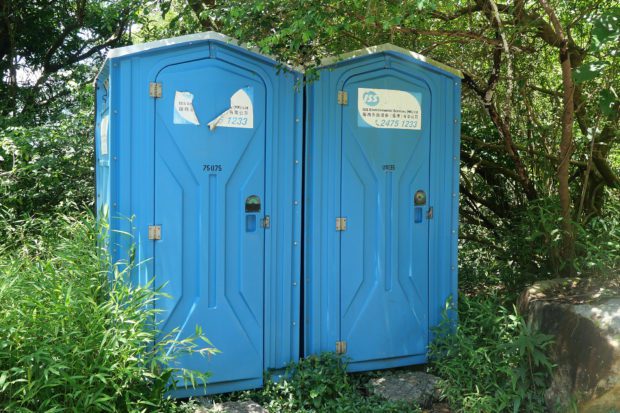
By age 40, Jack Sim had gotten rich off the construction industry in Singapore. (No, life “didn’t end” for him then.) At 41, he founded the restroom association in that sovereign nation-state that lies on an island in southeast Asia.
Then on Nov. 19, 2001, Sim, 43, founded what we might call “the other WTO,” that is, the World Toilet Organization. It comprised 15 members and has since grown to 151 member organizations in 53 countries.
The WTO recognized the need for an international day to draw global attention to the sanitation crisis—and so established World Toilet Day (WTD) on Nov. 19. The name “World Toilet Day” was chosen over “World Sanitation Day” for use in mass media, but toilets are the first stage of sanitation systems.
Since 2013, the United Nations has observed the day. And to meet the goals by 2030 of ending open defecation and supplying adequate sanitation facilities for everyone in the world who lacks them, work must be done at four times the current rate, according to the WTD’s website (worldtoiletday.info).
Meanwhile, in many parts of the world, a lack of facilities results in both public health and environmental issues. Every year, about half a million children under the age of five perish from diarrhea due to the lack of such facilities.
Locally, the issue is on many residents’ minds. Some broach it in conversation and start to scold unsheltered people merely for having bodies that function as yours and mine do. The crucial factor, of course, is they lack proper facilities.
They didn’t simply abandon jobs and housing, and those things aren’t simply waiting for their return. They are displaced, shut out.
In the years following the 2008 record-setting $2.35 million settlement of a homeless lawsuit, homeless advocate Mike Rhodes persuaded City of Fresno officials to support the provision of sanitation facilities to serve unsheltered people who congregated on the street by the Poverello House.
In 2021, such official support having withered as the pandemic subsided, Gordie Ochinero-Bermudez rose to the occasion. She pedaled her bicycle 470 miles on a “Porta-Potty for Dignity Ride,” thereby raising public awareness and funds for this cause.
In July of this year, the City of Fresno used CARES Act funding to get a restroom-furnished trailer up and running. The trailer supplements the sparse shower facilities of the Poverello House.
By next April, the City is expected to get another restroom trailer. To be sure, some showers are better than no showers. Even with two trailers each equipped with four bathrooms, those eight will serve a population of some 4,000 people. The state’s building standards code sets the maximum toilet users at 25. Here, there will be one toilet to serve 500 people.
Almost all restrooms in the city of Fresno, both public and private, are kept locked as tight as a drum. In a cruel irony, the response human society gives its neediest members is to keep failing them. It seems they’re easier to ignore, to slink into smug indifference to their plight or rationalize it as if it’s their just fate, than to face the people and the moral responsibility we owe them.
With restrooms inaccessible to unsheltered people, they have no alternative but open defecation. In this predicament, they face the possibility of being charged with the crime of indecent exposure and the heavy consequences that follow conviction for a sex crime. Of particular concern is the vulnerability of unsheltered women to attack.
Your participation counts, whether you have the mayor’s ear or are a long-distance bicyclist. You can be a constructive part of this issue just by attending an event scheduled Nov. 19 at the Fresno Center for Nonviolence (1584 N. Van Ness Ave.).
At this event, we will hear from Rhodes and Ochinero-Bermudez. We will look back at the history of California’s toll bathrooms, at March Fong Eu’s inspiring campaign for greater access and will seek to understand where we’ve come.
We will view short video clips of other communities’ experiences in providing or trying to provide porta-potties for use by their unsheltered residents. We will gain insight from viewing and discussing a video of homeless advocates in Berkeley who’ve striven to provide sanitation facilities for theirs. Finally, we will do likewise from the National Healthcare for the Homeless Council’s video on provision of showers for people experiencing homelessness.
The Nov. 19 event is an opportunity to focus our attention on this particular issue. Through education and continued efforts to seek justice, you might make history as Jack Sim has. The event begins at 2 p.m. at the Fresno Center for Nonviolence. RSVP to fresnohomelessadvocates@gmail.com.
